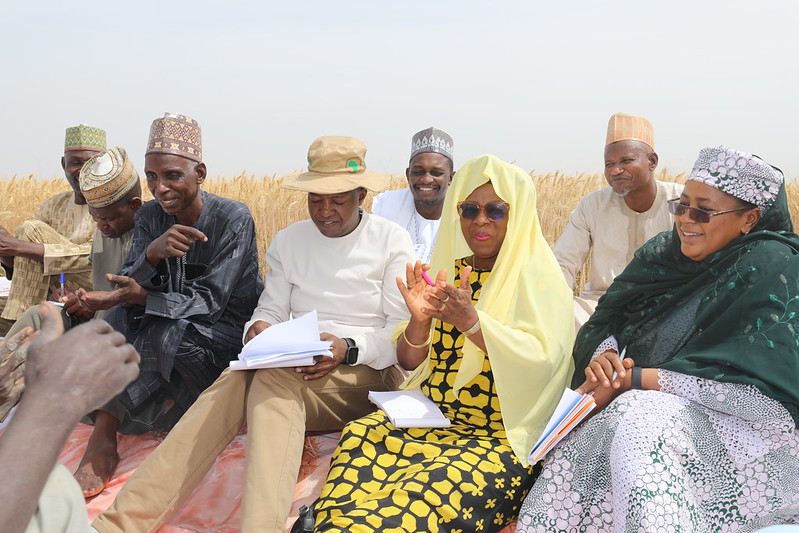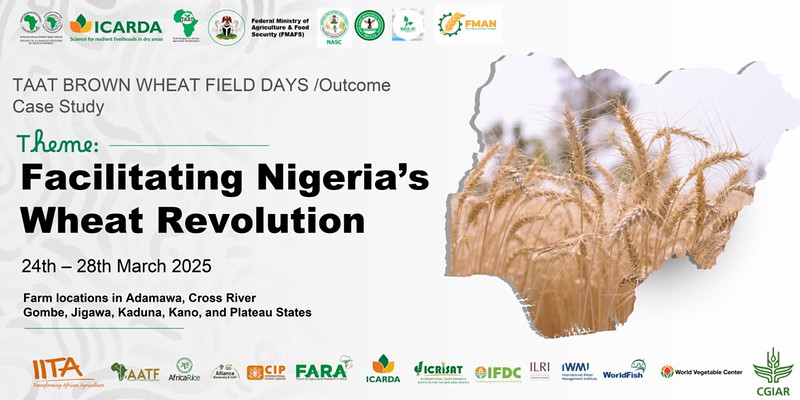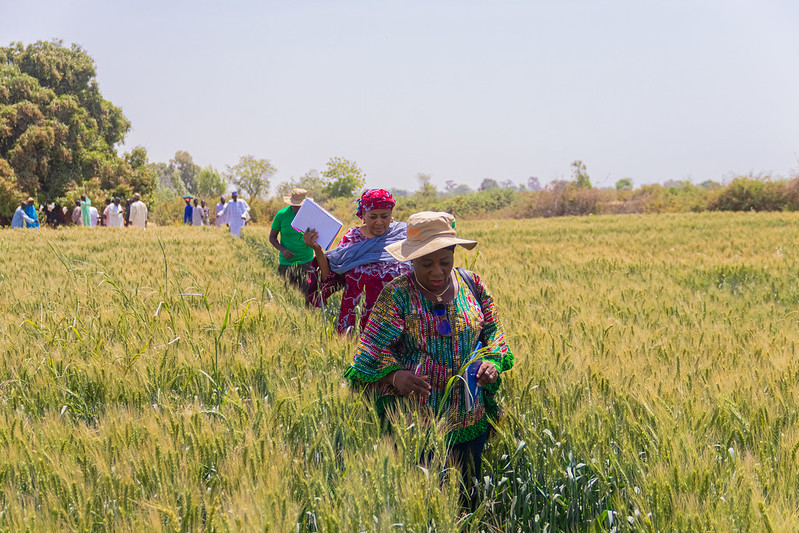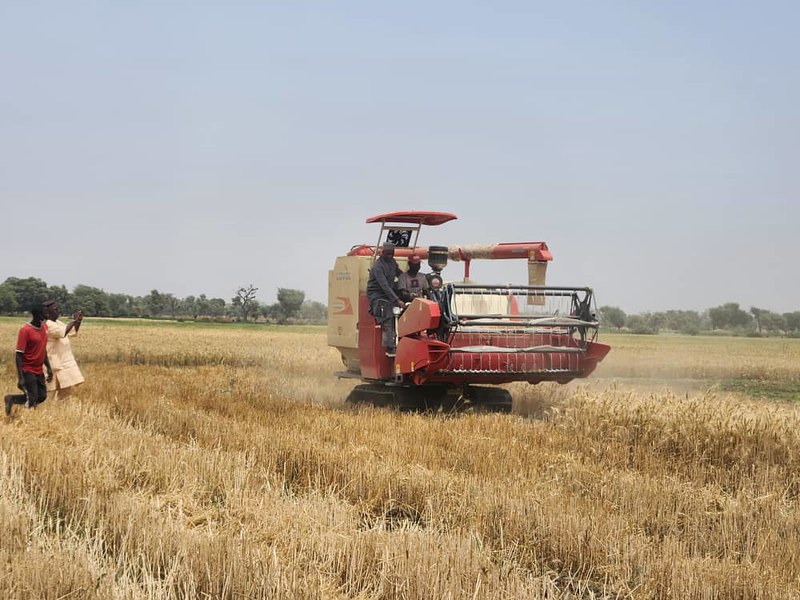
By Deborah Olaoluwa
As part of aggregated efforts to facilitate and sustain the wheat revolution in Nigeria, the Technologies for African Agricultural Transformation (TAAT) programme, in collaboration with different stakeholders, held Brown Wheat Field Days in wheat-growing states across the country.
The field days, which comprised visits to wheat fields, seed companies, and processing centres, were held from March 24th to 28th , 2025, in Adamawa, Cross River, Gombe, Jigawa, Kaduna, Kano, and Plateau states in the northeast, north-west, north-central, and south-south regions of Nigeria.
The field days brought together farmer cooperatives, extension agents, researchers, seed companies, community seed producers, farmers, and development partners to brainstorm on the achievements, innovations, challenges, and prospects for deepening the Nigerian wheat revolution. TAAT and partners also held an outcome case study and monitored and evaluated the wheat transformation programme initiated by the Federal Government of Nigeria.

Organised in partnership with the Federal Ministry of Agriculture and Food Security, the National Agricultural Growth Scheme and Agro-Pocket Program, NAGS-AP, Jigawa State Government, the International Centre for Agriculture in the Dry Areas (ICARDA), and the Lake Chad Research Institute (LCRI), the five-day event underlined TAAT’s focal commitment to transforming African food systems through the deployment of path-breaking technologies and sustainable seed systems.
Other partners include the National Agricultural Seed Council (NASC) and the Flour Milling Association of Nigeria (FMAN).
According to the Head of the TAAT Clearinghouse, Dr Solomon Gizaw, “the field days seek to identify challenges mitigating the wheat seed sector in Nigeria, the causes of seed mixtures along the seed value chain, the missing gaps in the seed development process, provide technical knowledge on wheat seed production, including quality seeds selection, good agronomic practices, and storage, and exchanged knowledge on strategies for a sustainable wheat seed production in Nigeria.”

Dr Oluwatoyin Adetunji, the Team Leader for the field days and outcome case study, affirmed that the field days and study assessed the Nigerian government’s contribution and those of the state governments in advancing the wheat transformation programme. “The aim is to document the achievements and challenges, which will be profitable for future planning, she said.
“The field days and study will equally assess the role of all the partners in the Nigerian wheat sector, the technologies are being deployed, level of access to improved seed varieties, seed performance, provision of technical support to the National Agricultural Research System (NARS), the selection criteria for the beneficiary groups, and the inclusion of women, men, youth and other vulnerable groups in the wheat sector transformation,” she added.
Other areas of interest for the study include assessing awareness creation on the benefits of using heat-tolerant and high-yielding varieties, the suitability of the technologies deployed to boost wheat production and productivity, estimate the productivity level (t/ha) and land acreage (Ha) before/after TAAT’s intervention, side effects of using the TAAT-vetted technologies, access to other wheat production infrastructure /facilities such as irrigation infrastructure, fertilizer, agro-input supply, mechanization services, financing facility, e -voucher/e – wallet, market information, and extension services.

The study additionally assessed the availability of communication and information sharing on Nigeria’s wheat production roadmap, the quality of technologies and seed, sufficient resources, extension services, the availability of seeds in warehouses, incentives to the private sector to provide service to the wheat growers, access to financing opportunities, digitisation, and mechanisation.












